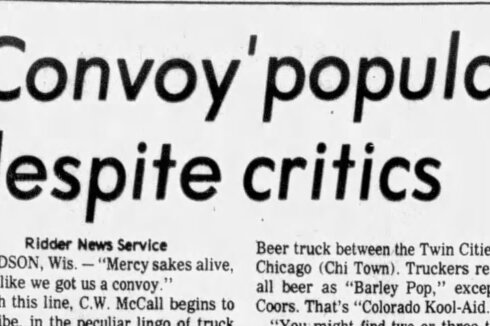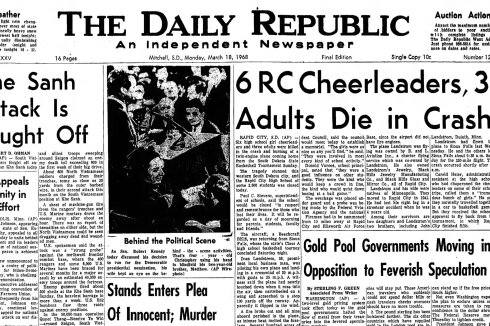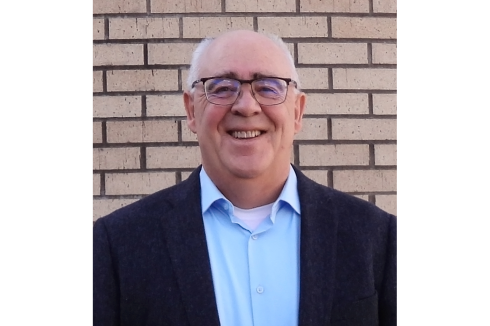Editor's note: This story is part five of a five-part series examining the Plymouth Brethren Christian Church, its beliefs, practices and its role in the North Dakota town of Neche, population 344.
St. VINCENT, Minn. — Just before the COVID-19 pandemic, Tori Younggren needed a job. She didn’t have a teaching degree, but administrators at OneSchool Global - Pembina Campus — about 18 miles east of Neche, North Dakota — didn’t seem to mind.
ADVERTISEMENT
The private school with about 47 students from grades 3-12 offered to pay Younggren $150 a day, and she began teaching elementary art and physical education without many questions asked.
“I thought it was strange that I had no certificate and no experience, and they were like, ‘absolutely we’ll hire you,’” Younggren said.
OneSchool Global – Pembina Campus is part of the Plymouth Brethren Christian Church’s educational system, which has three campuses across Minnesota, and globally a total of 120 campuses, all established exclusively for Brethren children. No outsiders allowed.
Among other stipulations, Younggren was required to wear a long dress to work except during gym class, a rule she could skip at times. There was also a strict separation between girls and boys, even in gym classes, and she also found out rules were often arbitrary.
Despite the curious environment, which she said became bizarre when she found church elders were often watching, Younggren developed a bond with a young female student who once drew a picture of her hero: Younggren.

“Then, the next semester she wanted nothing to do with me anymore,” Younggren said. “It hurt. I didn’t do anything. They told her something that made her not want to be around me anymore. I felt very hopeless on how I could ever have an impact.”
Forum News Service interviews with 25 people, including current members and 13 former members, revealed the Plymouth Brethren — a secretive religion with a heavy presence in Neche — mostly remains separate from society, but not when some of their beliefs or actions are challenged. It is then that they can become political, and at times pray for the deaths of those who oppose them, according to former members.
ADVERTISEMENT
Despite multiple efforts, Forum News Service was denied face-to-face interviews with Brethren leaders or entry to its Neche meeting hall. However, a Brethren representative did respond to emailed questions.
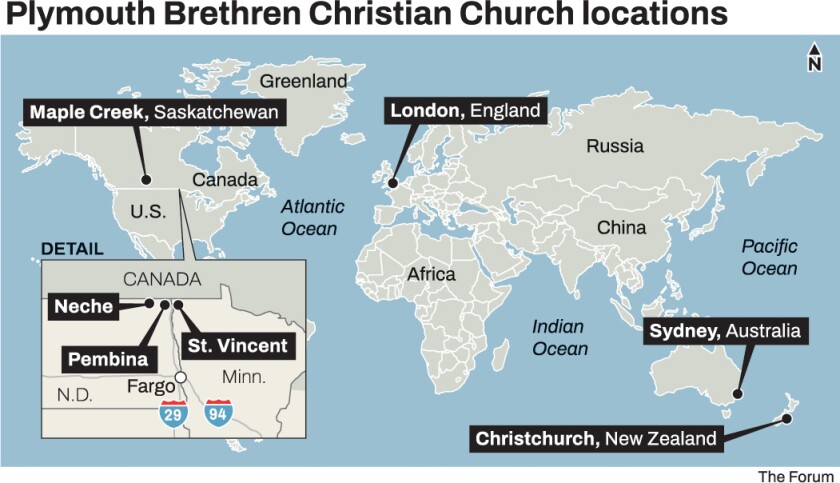
The Brethren representative told Forum News Service that the school is not owned by the church, but does share a close relationship. The system is supported through charities, Brethren members and what former members describe as the Brethren’s financial wing based in Sydney, known as the Universal Business Team, or UBT.
Additionally, “Teachers are professionally qualified and come from outside of the community. We do not teach religion in schools, as we believe that this is best undertaken at church and at home,” the spokesperson said.
A OneSchool Global in America regional director, who wished to remain anonymous because he did not have authority to speak for the organization, told Forum News Service that the school performs background and accreditation checks on all staff. Every staff member and volunteers undergo specialized training, which was not described in further detail.
Tight control over information and propaganda are some of the aspects that lend credence to former members' claims that the Brethren is a cult — as outlined by cultic expert Steven Hassan’s BITE Model of Authoritarian Control — a four-part checklist on how cults recruit and maintain control over members’ behavior, thoughts, information and emotions.

Making headlines
Growing up near Neche, Younggren knew little about the Brethren except that they were her neighbors.
ADVERTISEMENT
“We know the Brethren are here, but we try to act like they’re not here,” Younggren said. "These rural communities breed tight groups."
Younggren left the school after her mother, the principal, who helped hire her, quit, and now works at her own seamstress store in Hallock, Minnesota.
“I just got so sick of it. I felt like I was no longer making an impact and always getting in trouble,” Younggren said.
Other teachers who spoke to Forum News Service offered insights similar to Younggren’s, but declined on-the-record interviews.
Despite the Brethren’s attempts at secrecy, the OneSchool Global-Pembina Campus has made headlines locally and internationally.
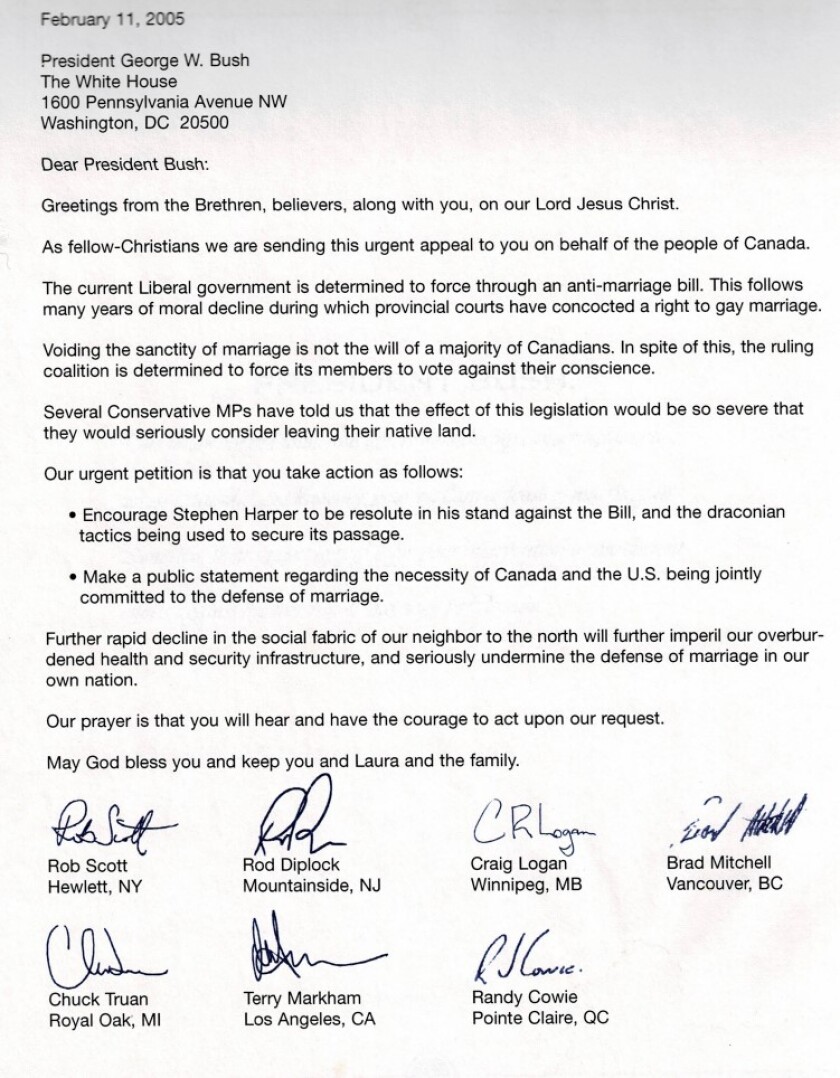
In 2022, two Brethren campuses, the one in St. Vincent, along with a campus in Stonewall, Manitoba, lost a fight in federal court to keep their identities hidden after they asked the Canadian Museum for Human Rights not to show their students LGBT material during field trips.
From 2015 to 2017, the museum complied with the OneSchool Global’s requests, according to media outlets, but later promised never to adapt tours again after a CBC News report came out.
ADVERTISEMENT
In November 2022, a judge ordered the records be released along with a 3,000-page court record detailing the dispute.
The Brethren has a long history of condemning homosexuality, and the church became politically active as early as 1993, when it openly spoke out against gays in the military. Then, in 2004 and 2005, their concerns broadened, and the re-election of President George W. Bush became “extremely critical,” according to a published report on why the Brethren become involved in politics in 2005 by Peter J. Lineham of Massey University, Auckland, New Zealand.
Under the guidance of Brethren “universal leader” Bruce D. Hales, Brethren members were urged to become involved against the existential threat to “true marriage” even though they are not allowed to vote. Dozens of Brethren members, many from Canada, wrote to Bush praising his stance against gay marriage and pleading with him to stand firm, according to letters reviewed by Forum News Service.
And in Australia, the Guardian reported that the Brethren’s OneSchool Global network of private schools received almost $30 million in commonwealth payments for educational “disadvantage” — or challenges students faced because of their social or historical background — over five years despite many being among the country’s wealthiest schools.

‘Removal from this earth’
Ben Woodbury, a former Australian Brethren member, came out as gay when he was 19. On social media, he’s known as “excultboy.”
His experience illustrates the depth to the anti-LGBT feeling and strict censorship within the Plymouth Brethren that shapes their school policies and political activism.
ADVERTISEMENT
“I genuinely didn’t want to be gay. I was extremely homophobic toward myself,” Woodbury said. “I knew I was gay from the age of nine, and until I was 14 I thought I was the only gay person in the whole world.”
Brethren members aren’t permitted to read anything they want, Woodbury said.
However, as a young teen, Woodbury would secretly read whatever outside news he could find. One day, he stumbled across an advertisement in the back of a newspaper and found the classified section.
“I found a male seeking male advert and that’s when I realized I wasn’t the only gay person in the world,” Woodbury said.
The trauma he endured after he came out as gay didn’t end when he left the Brethren. He has received threats through social media and emails, and he reports each case to the Brethren, who usually say the threats aren’t representative of their organization, Woodbury said.
“The straw that broke the camel’s back was a phone call where I was told they were going to put me into a closet and set it on fire,” Woodbury said. “I genuinely see that all it takes is one looney thinking that he’s a Christian crusader of the Brethren doing the man of God’s work. We all used to pray for the deaths of people who spoke up. I took it seriously.”

When asked for clarification, Woodbury described further:
ADVERTISEMENT
“That was a common thing, and it still is, praying for the removal. Removal. Removal from this earth. Death. And you got kids doing that. They would put them on a little list and pass them around,” Woodbury said.
In the Brethren’s universal leader Bruce D. Hales’ words: “Persons that have taken a position of opposition against the saints, those that have gone out from us, what happens is that they become the agents of the devil,” Hales said, which is included in the Brethren’s publications, known as “ministry,” reviewed by Forum News Service.
A spokesperson from the Brethren denied that members pray for the deaths of those who criticize them.
“From time to time, some parishioners may pray for unfair criticism and attacks against the church to stop. But as for your broader question — the answer is an absolute, unequivocal no. No that does not happen and has never happened.
“We are Christian, and we believe that you turn the other cheek when wronged,” the spokesperson said.
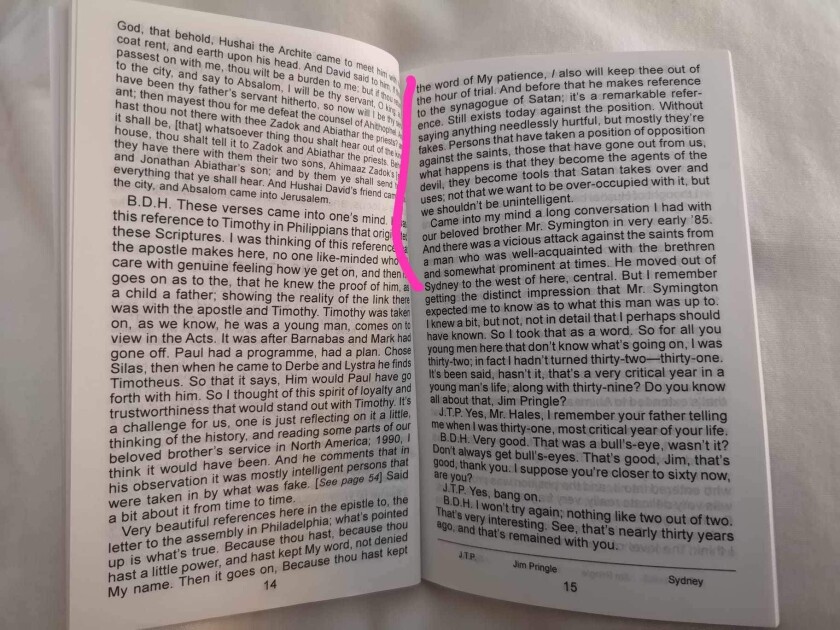
When asked about outsiders, a Brethren spokesperson told Forum News Service that they try to “do good to all, as opportunities arise,” and that their church is “based on the values of love, care and compassion, not fear.”
After Woodbury received the death threat, he filed a complaint with police and has a pending court case coming up. Woodbury also knows of current and former members who were physically abused, he said.
“Out of the 15 people I have helped leave so far, seven have been abused, and one to the point of rape. It’s just something you don’t talk about,” Woodbury said.
The Brethren accepted the teachings against homosexuality in an article by George Mair, which states that being gay is a sin, “which brings revulsion to most Christians,” and is a “head-on collision” between modern science (which regards it as a psychiatric illness) and Scripture, which condemns it as a sin.

‘Otherwise I am a goodie goodie’
Tori Younggren wasn’t aware that shortly before she joined OneSchool Global as a teacher, a former principal of the school, Warren Nelson Anderson, was arrested on 10 child pornography-related charges. At the time of his arrest he possessed more than 3,000 images and videos of young children being abused, according to court documents.
As principal of one of the campuses managed by the Plymouth Brethren Christian Church in the U.S. and Canada, he later pleaded guilty to receipt of child pornography in Minnesota’s Kittson County. It is unclear if Anderson was a member of the Brethren, who typically hires staff outside their community.
A search warrant was executed at Anderson's St. Vincent home on March 27, 2017, by the Minnesota Bureau of Criminal Apprehension and the North Dakota Bureau of Criminal Investigation. Investigators seized a computer and external hard drives, according to the criminal complaint.
When questioned during the search, Anderson admitted to downloading some "questionable things" and told law enforcement he had been downloading and viewing child pornography for about 10 years. He said that he had never manufactured child porn and claimed to never have touched a child.
Anderson acknowledged to law enforcement that he knew what he was doing was wrong and said, "otherwise I am a goodie goodie," according to the criminal complaint.
There were also no records of Anderson’s teacher’s license in the Minnesota Department of Education database, but he held positions across the globe where he had close contact with children, according to court documents.
“It’s all just a facade. They don’t care how good a teacher we are. I didn’t have a teacher's degree. You don’t have to be a licensed teacher to work there,” Younggren said. “Their textbooks are blacked out, huge pages that have black Sharpie on them. Pages have been removed. Cameras everywhere in the school. Cameras on your work computers. They could look in on your computer at any time.”
Former Brethren members reported that all technological devices are armed with spyware called Streamline 3 , which members pay for every month at the non-negotiable price of $37.
“You’re required to have UBT phones and use the UBT plan, which controls the internet,” said former member Carman Drever, adding Brethren leadership has access to phone and internet logs of its members. Additionally, the church has access to random screenshots of online activity and can track its members.
In a recent story published by The Guardian, a Brethren spokesperson said that software like Streamline 3 is “normal practice” in their schools to “prevent harmful content, malware and the like” and that the non-student version for Brethren members is not monitored, but used for preventing malware only.
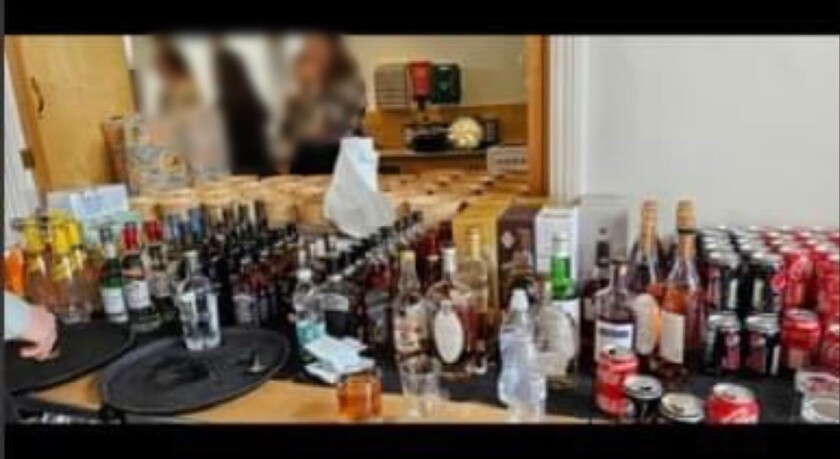
‘Drink makes a strong man stronger’
While working at OneSchool Global, Younggren said she saw signs of abuse, especially related to alcohol. Drinking among students was one problem she said she wasn’t allowed to address.
“Those little kids would talk about drinking. Little kids. We had kids drinking in class, using water bottles – straight vodka. We weren’t allowed to punish them,” Younggren said, adding that she was also not allowed to fail them.
A spokesperson for OneSchool Global in America disagreed with Younggren, saying that teachers are allowed to fail students if they perform poorly and that “alcohol has never been condoned on OSG Campus grounds.”
The Brethren never were “tee-totallers,” according to former members, but rarely drank strong spirits before James Taylor Jr led the church beginning in 1959. His leadership ended in 1970, shortly after the Aberdeen incident, a sexual scandal that split the sect in two. Those that followed Taylor became the Exclusive Brethren and followed his example of favoring whiskey.

“Until James Taylor Jr. came in, hard liquor was considered sinful. He was the guy who radicalized it. Up until then it was like 100 boring, hardline sects, but he radicalized it, and he made a lot of money out of it,” Marsh said.
In the 1970s, Brethren preferred Johnnie Walker Red Label or Black Label Scotch, but their tastes have refined in recent years to Johnnie Walker Blue Label, Maker’s Mark bourbon and Chivas Regal Scotch, said Carman Drever, a former Brethren member who left in 2004.
Most American Brethren members drink slightly less than those who live in Australia or New Zealand, but many employers have mini bars stocked full with alcohol in their places of business, Drever said.
Some larger meeting rooms even have a lounge area that stocks alcohol, Drever said.
Alcohol is also given freely to teenagers, Drever said. Another former member, Ilona Lyons, said her son was 12 years old when he was handed his first beer to drink.
“Unfortunately, that has been a problem for as long as I remember," Drever said. "The change is now they are offering multiple beer and hard liquor options as well."

Alcoholic options are also available through Vendimia, a supplier of wine and spirits “with an ever-expanding range,” according to the website of the Brethren’s Campus & Co., a store that is exclusive to members. To find out what those options are on the Australian website, however, a UBT membership is required.
Alcohol abuse in the Brethren has apparently come to the attention of Hales, the Brethren’s “universal leader.” He has discouraged heavy drinking in his published works, which sometimes are called “the badger’s skin” to be used as a shield against outsiders, according to Marsh.
According to one passage in the “Ministry of Bruce Hales, Book 1,” he is quoted as saying: “Drink makes a strong man stronger and a weak man weaker.”
Brethren online magazines also say drinking must not be abused.
“While the Brethren do not forbid the consumption of alcohol, we emphasize the importance of responsible use and moderation,” an online Brethren magazine reported.
Hales has lectured the Brethren to drink in moderation, at the same time acknowledging that drunk driving and underage drinking was becoming a problem.
“The answer is control,” Hales said in 2002.
In 2004: “We have had these lovely young brethren who have had trouble with drink-driving charges. I think we’ve been as fair as we possibly can to them, do everything we could for them. It’s an awful thing to get into custody,” Hales is quoted in the Brethren’s ministry book.
By 2006, Hales recognized a problem among the Brethren with drinking excessive hard liquor. “Measure is needed. See, prohibition doesn’t attach to the liberty of Christianity, prohibition won’t work. But self-control will. It’s a fruit of the Spirit. It’s a crime, drink-driving is a crime,” Hales is quoted in the Brethren’s ministry book.
In 2007: “I think the young people drink hard liquor too early and too much of it. The difficulty is we live in a time of really great affluence, in the main,” Hales is quoted as saying in the Brethren’s ministry book.
Stephen Kent, the retired Canadian professor considered an expert on alternative religions, believes that alcohol consumption is one way the Brethren exerts undue influence on its members.
“It (Brethren) doesn’t allow drugs except for alcohol. There are some internal problems in the group very often from alcohol abuse, which might be a way for them to cope with the extreme stress that people feel,” Kent said. “So the use of undue influence in a variety of forms helps to create obedience and dependency upon the group and in doing so explains why many people in the outside world who know about the group consider them to be socially deviant and a cult."








